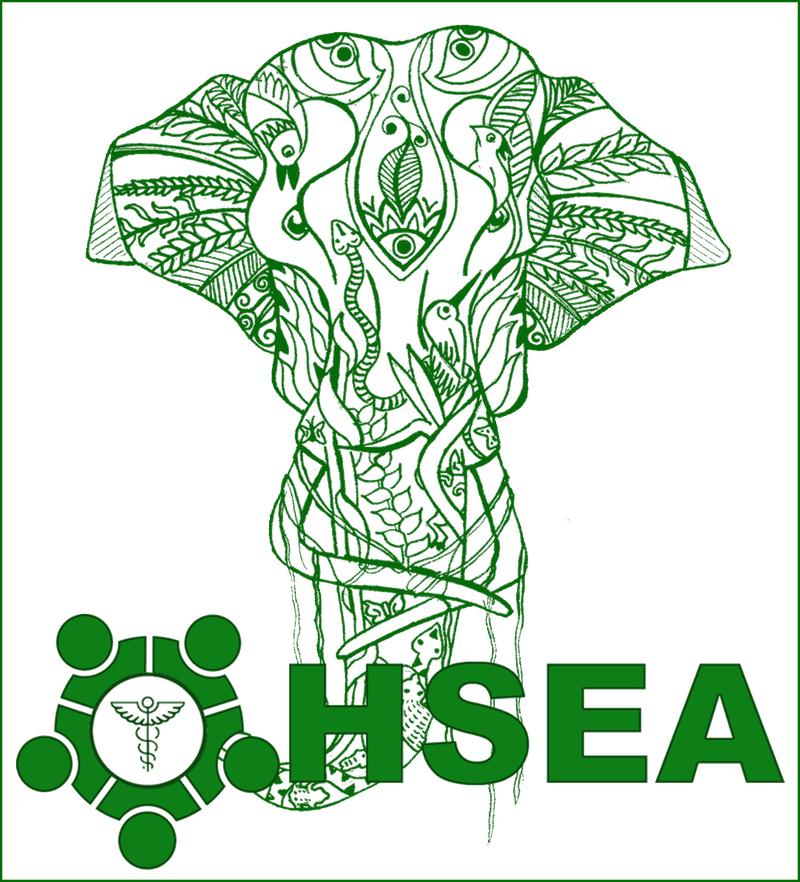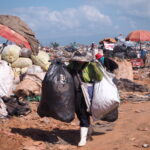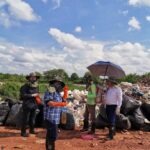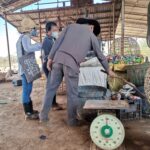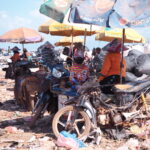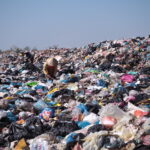Vientiane’s landfill Investigation to study the Emergence of Diseases related to waste management
INTRODUCTION TO THE PROJECT
According to many recent reports, the waste management and recycling system are problematic in all cities in Laos. For instance, in Vientiane, the low rate of waste segregation (less than 8% following a survey conducted by JICA in 2011 and no data acquisition survey has been conducted since then) leads to many recyclable materials ending up in the unique landfill located 32 kilometres from the city centre in Xaythany district or being illegally burned. In addition, in Vientiane, which has experienced a rapid acceleration of its urban expansion over the last ten years, solid waste in Vientiane is projected to increase by over 60% by 2030 from around 1,004 to 1,675 MT/day.
Many ongoing projects, operating in the “solid waste” field in Vientiane, aim to promote the implementation of the adoption of waste-to-resource opportunities or to strengthen the capacities of informal waste pickers in Vientiane; however, no study following the One Health approach has been carried out yet. A number of studies related to Infectious disease epidemiology have shown solid waste and plastic pollution as risk factors for vector-borne diseases and urban zoonoses.
In that context, the multi-disciplinary approach (geography, ecology, biology, urbanism, art) that we present aims to provide a global perspective on waste management at the landfill scale in Vientiane.
A spotlight on the tight spatial relationships between ecosystems, human activities (including urban planning) and health will be carried out through the implementation of various measures and analyses in order :
1) To establish a diagnosis of the extent of pollution and health risks and to prevent a zoonotic disease emergence;
2) To raise awareness of the need to advocate for the One Health Approach in urban areas with the decision-makers and the public at large.
PROJECT IN ACTION
Our study focuses on the scale of the Vientiane’s landfill and its surroundings (approximately 100 hectares in Xaythany district). The methodology (spatial analysis, processing of collected data, cartography, architectural drawings, photographs …) of the research as well as all the dissemination activities of the team in Laos will be carried out jointly with the Vietnamese team (Hanoi Architectural University)
Task 1: A collection of various samples (soil, water, plants and rats) at three sites (Into the landfill; between the landfill and the waterways zone; between the waterways from the landfill and the superior waterways zone) and in three periods (dry season, first period of raining season, middle period of raining season).
– Soil sampling: Approximately 50 to 100 g of soil randomly collected at 0–1 m depth at an area of 50 cm2.
– Water sampling: Two kinds of water (surface water and ground water)
– Plants sampling: The botanical survey includes plant collected to make the herbarium collection, habitat notice, species Identification, dry
matter production. All of these informations were used for Phytostabilization in a further collaboration project.
– Rodent sampling: The samplings, including species identification, rodent sampling collection (tissue samples (blood, ear, lung, kidney, liver, spleen), were aseptically collected and frozen directly on dry ice prior to storage at −80°C.
Task 2: Sampling’s analysis:
– Chemical analysis: focuses on heavy metal in soil (Cd, Cr, Mn, Ni, Pb, Zn…), water and biological sampling, such as pH, COD etc.
– Biological analysis: focuses on the bacteria cause infectious diseases (Escherichia coli, Bacillus sp., Bordetella sp., Klebsiella sp., Pseudomonas sp., Staphylococcus sp., etc.) for soil and water. Characterization on medium specific agar culture and confirmation using API 20NE. Bacterial DNA extraction and qPCR is to be considered.
Task 3: Conduction of a qualitative survey and Data collection and spatial and urban analysis of the site
– Qualitative survey that will deal with, on the one hand, the nuisances and pollution experienced by the inhabitants and villages heads and ecosystem changes and ; on the other hand, with the evolution of living conditions and impacts of the landfill on their daily life (food, household economic, ….) and health conditions since its establishment in 2008.
– A study of successive landfill projects is carried out to question the logics of the decision-makers and their effects on the current waste management problems and current challenges. The team conducted a spatial and urban analysis (urban management, territorial governance) related to land use in order to link the issue of urban planning to the one on health diagnosis.
– In addition, a survey was conducted in the villages surrounding the landfill, exposed to various pollutions.
- Unloading of waste collected in Vientiane Capital
- Manual transport of waste to the recycling centre
- Preliminary discussions with some waste pickers
- Photo of part of the team
- Discussion with the recycling centre manager located at the landfill
- Daily life in the landfill
- Waste picker at work
NEXT STEPS
- A regional dynamic that will go on, has been created : The methodology of the research as well as all the dissemination activities of the team in Laos have been carried out jointly with the Vietnamese team who has shared their renowned experience on recyclable waste collection by informal sector issue. This sharing has been carried out with a view to furthering joint research. Indeed, trainings on fieldwork survey, spatial and social data collection lead by the Vietnamese team and, a common exhibition presenting the methodology and the results of the analyses of all components of this research have been organized. In any case, this project is the first step in a collaboration that will be developed further.
- Training futur One Health researchers : the team includes senior and junior researchers, a PhD student, engineers, teachers and students (from Laos, Vietnam, France). Therefore, participate in capacity building for students in the faculties (science, environment, architecture) involved in the project, has strengthen their skills on waste management. The team wants to go further and propose a “Jeunes Équipes Associées à l’IRD” (JEAI) project in Laos (2023).
- Dissemination plan : an exhibition on waste management presenting the team’s methodology, data collected and analysis results. Additionally, a story telling of a comic book related to waste management, landfill and infectious disease is panned for the end of 2023. Also, two scientific articles will be published in journals (one in a Q2 journal; the other in an A-ranked environmental science journal).
INEDI ON THE WEB
XXXX
CONTACT
Project leader : Oudomphone INSISIENGMAY (oudomphoneinsisiengmay@gmail.com)
Associated researchers :
Karine PEYRONNIE (karine.peyronnie@ird.fr)
Mrs NGUYEN Thai Huyen (huyen.nt@hau.edu.vn)
Mr NGUYEN Tien Tam (tientamnguyen.1106@gmail.com)
Mrs Khemngeun PONGMALA (kpongmala@gmail.com)
Mr Liphone NOPHASEUD (l.nophaseud@nuol.edu.la)
Mr Germua TONGPOH (kawmuas1979@gmail.com)
Countries involved : Laos and Vietnam
